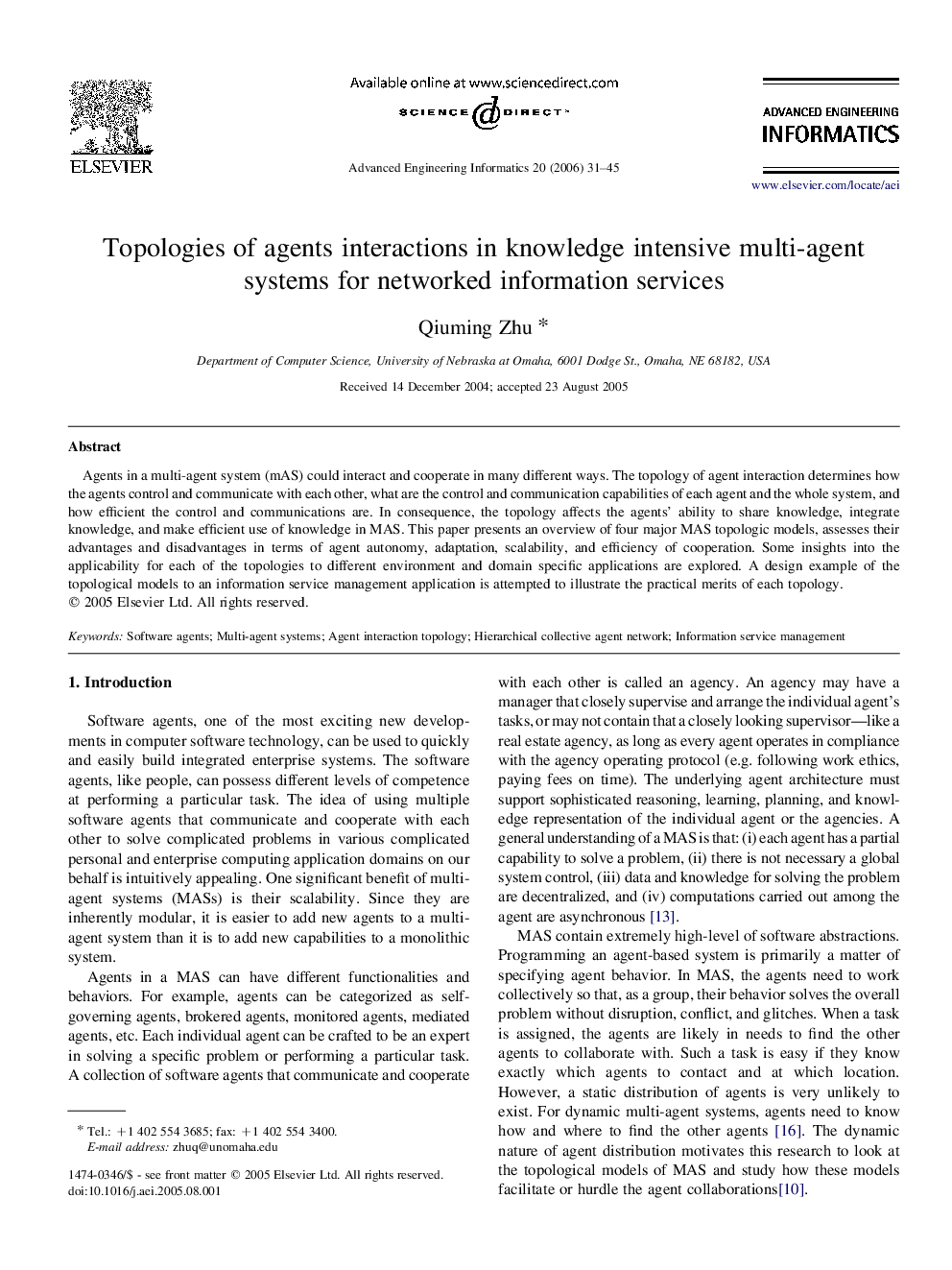| Article ID | Journal | Published Year | Pages | File Type |
|---|---|---|---|---|
| 242386 | Advanced Engineering Informatics | 2006 | 15 Pages |
Agents in a multi-agent system (mAS) could interact and cooperate in many different ways. The topology of agent interaction determines how the agents control and communicate with each other, what are the control and communication capabilities of each agent and the whole system, and how efficient the control and communications are. In consequence, the topology affects the agents' ability to share knowledge, integrate knowledge, and make efficient use of knowledge in MAS. This paper presents an overview of four major MAS topologic models, assesses their advantages and disadvantages in terms of agent autonomy, adaptation, scalability, and efficiency of cooperation. Some insights into the applicability for each of the topologies to different environment and domain specific applications are explored. A design example of the topological models to an information service management application is attempted to illustrate the practical merits of each topology.
